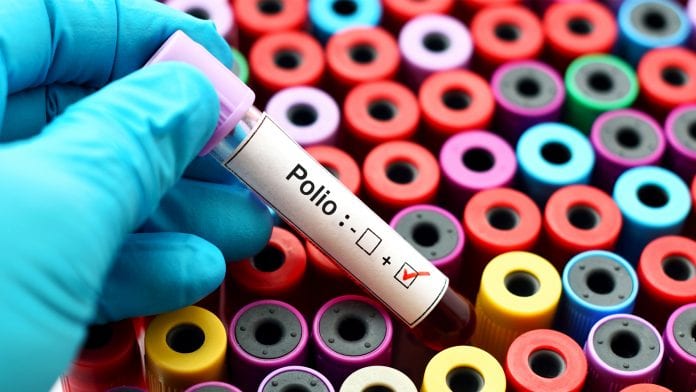
Researchers have created a freeze-dried polio vaccine that doesn’t need refrigeration, meaning this could someday be used worldwide to eradicate polio.
Researchers from the University of Southern California, USA, have created a vaccine that does not require refrigeration. The injectable vaccine, which was freeze-dried into a powder, kept at room temperature for four weeks and then rehydrated, conclusively offered full protection against the polio virus when tested in mice, therefore creating a freeze-dried polio vaccine with the potential to eradicate the disease.
Freeze-dried polio vaccine and what it means for us
Woo-Jin Shin, first author of the study, a fellow in the lab of Jae Jung, chair of the Department of Molecular Microbiology and Immunology at the Keck School of Medicine of USC, explains: “Stabilization is not rocket science, so most academics don’t pay much attention to this field.”
“However, no matter how wonderful a drug or vaccine is, if it isn’t stable enough to be transported, it doesn’t do anyone much good.”
Polio is on the brink of complete eradication, with a reported 22 cases worldwide in 2017, the highly infectious disease, which causes lifelong paralysis and disability mostly in young children, is a fading memory in many places. Yet in countries where vaccination rates are sparse, young children are at risk.
The biggest hitch to complete eradication has been developing a temperature-stable vaccine for use in developing countries where the availability of refrigeration is limited or unattainable. Recent polio cases have been reported in Nigeria, Papua New Guinea, Syria and Pakistan.
The technique of attaining a freeze-dried polio vaccine
In the United States, the polio epidemic reached its height during the 1950s. In 1957, mass immunization brought the annual number of cases down from 58,000 to 5,600. Now since 1979, no cases of polio have originated in the United States.
By removing moisture through freeze-drying, scientists have created temperature-stable vaccines for measles, typhoid and meningococcal disease. However, researchers haven’t been able to make a polio vaccine that retains potency through freeze-drying and rehydration.
Using two lab techniques, liquid chromatography and high-throughput screening, the researchers utilized this to analyse a high volume of ingredients and formulations until they found one that worked.
Jung’s hope is that a foundation or company will take over the project to pay for human studies and bring the injectable freeze-dried polio vaccine onto the market.























Can it be administered by non-medical personnel? I understand that is one reason also that oral is still used in some areas of the world.